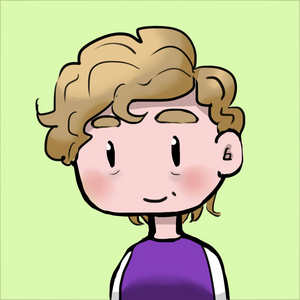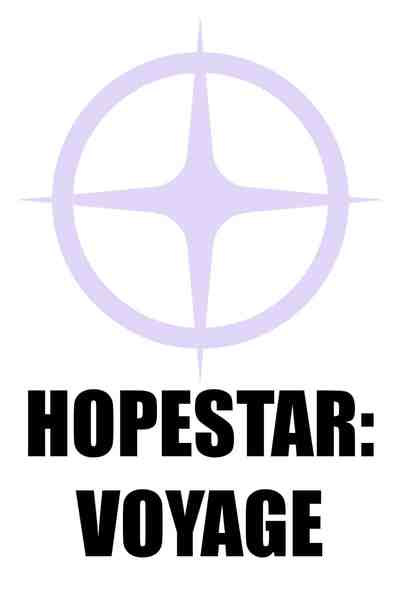The can shot out of the vending machine and stopped in the receptacle with a soft sound. Rin managed to prop it up with two fingers, and it popped out into his hand. He returned to the small waiting area that was hidden from the main Departures lobby by what clearly used to be a back wall of a small cafe and that passengers and see-offs kept missing. It was empty and exactly the way Rin wanted it to be.
He sat down on the window alcove, which was probably not meant for sitting, but there was no one to tell him off. Behind the glass the least scenic part of the Bogota space port stretched to the horizon. A long laser fence, a huge parking lot for staff, and empty fields the rest of the way, partially paved. The city, the rail line, and the highway were in the opposite direction and unseen from here, so it felt like there was nothing but isolated and abandoned desert.
Rin felt like it mirrored his soul right now.
He turned the can in his hands and brought it a bit closer to read the small text. (He could’ve scanned the code and read it on his interface, but that felt like too much effort.) “MARS ATTACK” read the name followed by an eye-roll-inducing description of how it contained 20% natural components grown in the sunny Martian fields. Not only the translation into Far-Galactic was made with mistakes, but Rin was sure there were no fields on the surface of Mars: everything was either underground or covered by dome shells, which weren’t transparent as far as he knew. As he opened the can and took a sip, all claims of “natural components” were also disproved. It was foolish to expect anything else from the cheapest of overpriced drinks from a vending machine in a space port.
Rin wasn’t sure why he was here. This morning it made all the sense to head to the port, right until his 9:35 appointment. Then his whole life changed. Seven years of Flight Academy, additional licenses for small atmospheric crafts, for semi-automatic shuttles and for instrument flight on personal hoppers, and a partial degree in XXVth century literature (he had free Fridays in the last semester) meant nothing anymore. He may have passed all the main exams with top grades, but everything everyone would see now was the red stamp in his ID file.
Technically, the red stamp didn’t mean he was banned from applying to jobs or couldn’t be hired and work just like everyone else. It, of course, was only informational, an important side note as mundane as gender, date of birth and blood type. In reality, it made him a second class citizen.
“The Demographic Problem” has been the main focus of the Earth government for the past two centuries. It was hard to settle the innumerable planets of the galaxy without people. There was not nearly enough to equal the ambition humanity had. What is twenty billion individuals on the galactic scale? Half of those were living on Earth anyways, the main magnet for money and resources in the human sphere of influence. How to stimulate the current population to procreate more? For the last century and a half the solution was the threat of a red stamp. It started as an attempt to inform a citizen that they may accidentally form a family with an infertile individual and therefore have no children. But almost immediately the application enveloped the child-free movement (which many admitted was an overkill, those people were just confused, after all), religious celibates (another attack on the freedom of religion!), and sexual deviants (no, this one actually made sense). The actual repercussions for having the red stamp in the ID soon followed.
Rin got his stamp this morning after the full medical scan he had to go through as part of completing his education. Infertility meant getting a stamp. The doctor was kind enough to go through possible treatment options that could lead to a successful recovery and the stamp being revoked, but Rin was too shocked to listen to him.
Red stamp meant he was a deviant.
Red stamp meant no one would want to hire him. It also meant he couldn’t apply for universal income, despite being a citizen of Earth.
Red stamp meant humanity would rather he quietly died.
Rin crumpled the empty can in his hands, trying to get rid of these dark angry thoughts. This wasn’t helpful. He still had some savings and was allowed to have a bank account. He could apply for labor positions, maybe join a mining company somewhere in the asteroid belt (probably, not in the solar system, most of it was stripped of valuable materials by now). Or he could leave the human SOI altogether and look for luck on the frontier. In Gemi systems even.
This made Rin’s skin crawl. He knew nothing about Gemis.
But the seed of hope was still there, so Rin got back on his feet, threw the can in the recycling machine, grabbed his hovercase, and headed to the main lobby.
Bogota wasn’t the biggest spaceport on Earth, however it was the closest to the Pan-American Flight Academy Rin graduated from this morning. He no longer had a room in the dormitory, which meant he was homeless. The knowledge didn’t bother him before as he hoped to get hired fast and live on a spaceship. Now that felt quite naive. But he also was no longer attached to any place on the planet: all his belongings were in the case, he had no family bonds, and the only friend he cared about would probably hate him now anyways. (Maggie didn’t know yet. Rin had no idea how to tell her.) The spaceport had banking facilities, where he could transfer his account funds to his interface for use outside the system. And he could use the rest to buy a one way ticket to the frontier. Perhaps to Minu; it was a habitable planet with two moons, one of which was rich with metals, so they would need cargo pilots there. Or Bagathon, where three planets were seeded and had busy traffic exchange between them. Maybe a private shuttle owner with an open mind could hire him.
Rin tried not to think about the fact that he had read all this information from magazines and had no actual idea of what life was like outside of Earth.
The main lobby was much more crowded than the waiting areas. People arrived through three tunnels from the rail line, parking garage, and upper levels. Most then immediately stopped to inspect the large screen with schedules or to download the same information to their interfaces. This created a constant traffic jam of humans and rolling or hovering luggage. Rin didn’t plan to stop there, but then a chime went through the speakers and no actual announcement followed. He looked up almost instinctively, wondering if there was a mistake or if the announcer’s microphone malfunctioned. That’s when he saw the name of the next ship arriving.
Hopestar.
This was the strangest coincidence. The morning he got a stamp, went to the spaceport without any plan for the rest of his life only to find the most famous space liner built and run by a stamped crew. It was a celebrity of a ship, one that you wouldn’t read about in magazines or newspapers, but in gossip blogs and small independent media. Hopestar was landing in ten minutes, and without thinking much, Rin headed for the lift hub.
There was an observation platform on the upper level overseeing the landing pads. On this clear day, he could see the city and distant mountains from there. There was still enough space near the window and he stopped there, trying to determine which direction the ship would arrive from. He decided it would be North-West and stared in that direction until his eyes hurt.
And then it was there, an orange arc high in the atmosphere that grew brighter and brighter and then extinguished, leaving the trail of evaporated coolant in its wake. A minute later the ship itself was finally visible to the naked eye. It grew in size as it approached, bigger than anything that should be flying, using a system of hover engines to quietly glide to the landing pad. The sun flashed brightly on its polished silvery-blue surface; the hovers on the bottom and sides emitted white glow that aberrated into rainbows at the edges. The landing gear extended in three heavy steps, the hovers slowly depowered, and the ship finally sat down in the designated slot. A heavy echo rolled through the port, making the observation deck’s glass rattle, and a big cloud of dust rose and covered the nearby vessels.
Rin felt people pressed to him on either side, watching the landing eyes wide, everyone’s attention on the ship. He felt disdain rising in his chest. They looked so impressed, gawking at the most unique ship in the human SOI, and yet each of them would turn away from any of the crew. One by one, the observers stepped away from the glass. A kid has been pulled away by his mother, “Don’t look at it for too long.”
Rin didn’t leave yet, but reached for his interface to download the Hopestar’s route plan. It was marked as leaving in 5 hours and heading for Colossus next. It was an old colony, self-sufficient and second richest of the human planets. Maybe there was work there. Or on Kashi-Sulak where Hopestar travelled to next.
He had five hours to purchase a ticket and board, so Rin hurried out of the observation deck and down to the financial level. He also stopped at the outernet hotspot and sent a letter to Maggie, explaining why he wouldn’t meet her for a celebration at the end of the week. He hoped she would write back. He wouldn’t know until he arrived at Colossus in two weeks' time.
An hour later, he stepped into the Employment Office for his last bit of bureaucracy to withdraw the resume he sent this morning. Only this time the office wasn’t empty: a man in light grey uniform stood at one of the consoles, scrolling through the list. A black logo was etched into the simulated leather of his jacket. The same logo Rin just saw on the Hopestar’s engines.











Comments (0)
See all